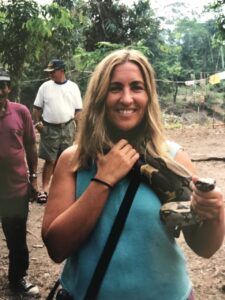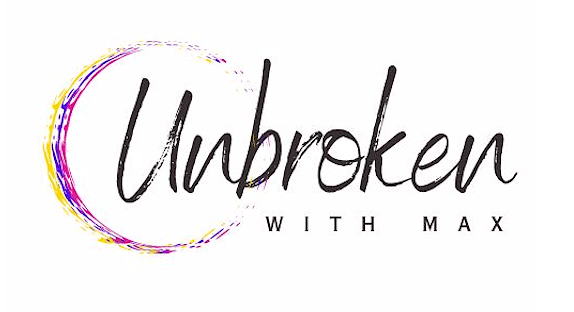MEET MAX
Max Lowen – Healer with a heart
Who is Max Lowen?
Max Lowen is a therapist who specializes in helping individuals who have suffered trauma.
She has worked with both victims and perpetrators to reach resolve and healing. Max has her own history of trauma, healing and recovery and uses both her education and experiences to assist others in their path to wholeness.
Max is the host of UNBROKEN, where she interviews survivors of Satanic Ritual Abuse, Sex trafficking, CPS whistleblowers, consciousness warriors, healers and exposes the extent of these practices on our planet.
Exposing the truth is a first step in creating solutions, and her show also focuses on the resilience of the human being, steps to healing and recovery and an impassioned plea for all to become involved in changing our world for the better.
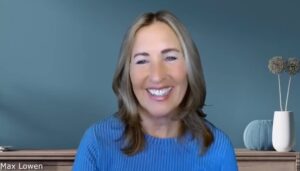
A little about my background
I was raised in several different countries due to my father’s job as a Foreign Service officer. I was born in the United States but moved to Chile when 9 months old. After Chile, I lived in Lesotho, The Dominican Republic, Argentina and high school in Rome, Italy.
Both my parents also grew up all over the world. As a child, my mother spoke Italian with me, my father English, and they spoke Spanish together, hence I grew up tri-lingual. I came to the USA after graduating high school in 1982 to attend University and later graduate programs.
My upbringing created in me an interest and openness to meeting people from other backgrounds, I am able to interact and get along with people from all walks of life. Because I did not grow up in any one culture, my perspective is one of understanding we are all diverse and yet one human race. I am both an American and a Global citizen
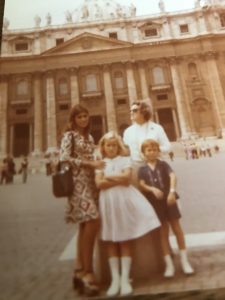
How can I help?
In my career, I looked to forge relationships with other providers, as working together creates benefits for both professionals and clients. As director of the Batterers program for Arlington County, VA, I created liaisons with the Police and the Probation Departments that were part of arresting and supervising domestic violence offenders.
No one in my position prior to me had done so. I met with probation officers weekly and kept them updated on progress with our common clients. I also gave talks for Probation and Police on domestic violence and my treatment protocols in group work to educate them on what I was doing. In turn they invited me to their meetings and ride-alongs with Police.
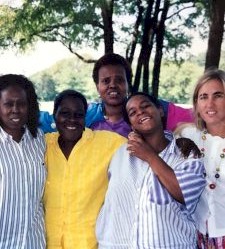
We each were able to experience what the other did, and our collaboration made all our jobs easier and was very helpful to the clients who benefited from coordinated care and supervision. I am particularly effective as a team member, and was given awards and recognition from past employers for my excellent communication and cooperative skills.
When I was younger, one of my bosses told me I was like the spoke of a wheel; I was the place where people of different backgrounds came together. She said I treated the CEO and the janitor with the same kindness and respect. I was known for my ability to get along with anyone and bring others from different backgrounds together.
As human beings we are a social species, and relationships are necessary for all of us. I once heard the term “other- selves” used to describe people around us, and I really like that word as it speaks to the fact we are all interdependent with each other, and on a higher level, are all one.
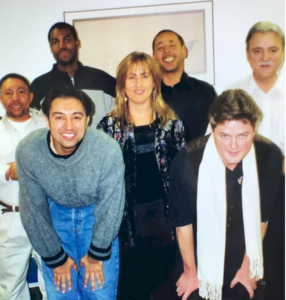
How do I bring about healing?
Healing necessitates our going inside and finding our traumatized parts. I teach people how to identify the different parts inside them by noticing what they tend to react to, by recognizing their thoughts, beliefs and emotions.
We may see our emotions as random and uncontrollable, but they are an incredibly attuned guidance system, giving us valuable data if we stop and examine their sources. Simply by bringing awareness to what is happening when the feelings arise, we move away from being ruled by our emotions and instead become empowered by them.
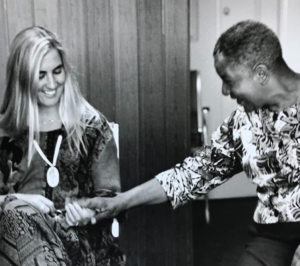
Relationships tend to highlight areas that we need to work on, as our partners will mirror what we need to heal. Normally, adult relationship conflicts ensue and create pain because we are not taking responsibility for the unaddressed wounds inside us; we see it as the other hurting us.
I often tell people that what they feel is 90% from the past and 10% the present. I have a series of steps we can take to begin to find and heal our inner fragmentation.
Identifying we have been triggered is the first step. Then taking the time to breathe and connect with whatever inner part is in distress, and expressing the emotions. Our emotions are one of the greatest assets we have in creating our most fulfilled life—that is when we know how to use them. Most of us have been taught to see negative emotions as something to be avoided at all costs.
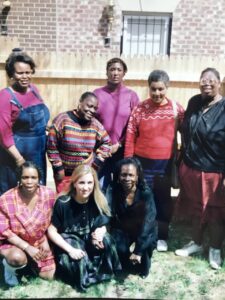
We create all sorts of self-care practices and elaborate avoidance techniques to ward off feeling “bad” in any way about anything. Instead, I encourage people to express their feelings by crying, screaming, raging and saying whatever comes up.
I call this doing “theater”, acting out what is trying to emerge, releasing the emotions responsibly, and reprogramming our distorted beliefs.
The important part of this exercise is to take responsibility for our emotions, so I teach people to express them in a healthy manner, rather throw them on another.
I help people learn how to soothe and comfort themselves (inner parenting) and lastly how to re-frame the situation. We all tend to perceive reality according to what our past experiences were, thus healing expands our perception and our ability to see ourselves, and hence others, more clearly.
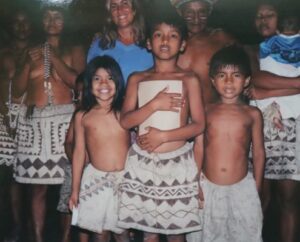
In this same way sometimes our children can trigger us, especially when they reach an age in which we may have had a traumatic experience. When we are unconscious, we project our pain outwards onto others. When we have done our work, we notice our reactions, express emotions consciously and responsibly, re-frame, and then are free to choose how we want to respond.
Being integrated means being free. Knowing ourselves means we choose our experiences rather than falling victim to them. The relationship between therapist and client is a powerful bond that can create a container in which to safely do the work.
The therapist re-parents and guides until the person is able to do this for themselves. Most of us did not get adequate parenting as children, but the good news is in therapy this occurs organically and at some point we can learn to parent ourselves, once we have experienced a positive connection with our therapist.
